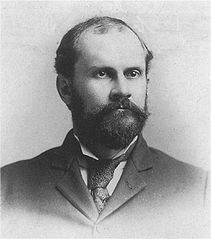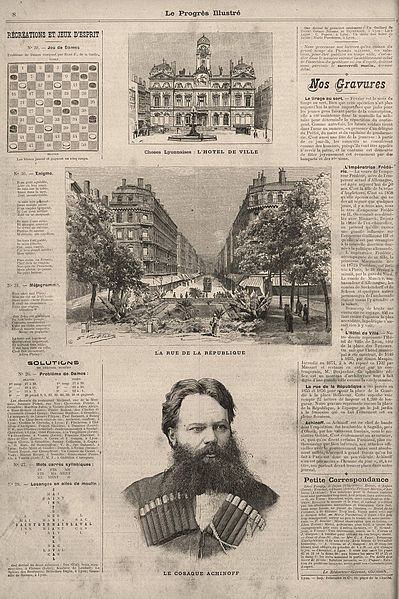October 25 1886. As a reaction to the The Years' War in Cuba, the Spanish declares slavery illegal in Cuba. This ultimately results in a higher rate of American investments in Cuba.
October 31 1886. The Seoul Central University establishes the Seoul National Observatory on top of Namsan. The Meteorology Bureau, subordinate to the Department of Agriculture and Commerce, is modelled after its American counterpart. By 1890 three more are established in Gangneung, Cheju and Uiju.
November 14 1886. Yuan Shikai celebrates the complete redevelopment of Foochow Arsenal with several foreign advisors. Work commences immediately after on the construction of warships and gunboats to refurbish the Nanyang fleet.
November 19 1886. Originally only the right-hand man to Li Hongzhang, Yuan Shikai slowly consolidates his power from the now-senile Li. This is signified as this day a New Army garrison in Canton - Li's power base - is turned over to Yuan.
December 2 1886. The first session of the Korea Central Assembly commences.

The Conservative Alliance is pissed at the lack of pissedness at the Central Assembly.
December 13 1886. Hawaiian King Kalakaua, as part of his plan to organize a Pacific confederation, appoints former Minister of Foreign Affairs John E. Bush to be the chief ambassador to the peoples and chiefs of the Pacific. His use of $30,000 for implementation of the policy is harshly criticised as part of his “delusional campaign”.
December 17 1886. English adventurer Thomas Stevens enters Korea on a raft across the Yalu river. For two weeks he will travel down the peninsula to Pusan, where he crosses the strait to conclude the world's first circumnavigation on a bicycle in Yokohama.
December 19 1886. American cartography experts, having arrived in Ullengdo a week earlier, attempt to visit the area where the islets are supposedly located but are forced to go back due to harsh weather.
December 25 1886. Two Presbyterian Churches in Hamhung celebrate Christmas, with around twenty followers in all. Several more celebrate the birth of Jesus Christ in Seoul and elsewhere.
January 1 1887. Many more reforms are passed and enforced. Litter becomes illegal as a form of transport, except at marriage and other ceremonial uses. Further budget is appropriated to continue the construction projects in Seoul, along with education reform. The most controversial reform, however, is the abandonment of conscription by the Central Assembly and the establishment of a mercenary army. This brings a large number of the unemployed lower-class to Seoul.
Estimated total population of Korea: 17,088,000

They see me rollin' They hailin'
October 31 1886. The Seoul Central University establishes the Seoul National Observatory on top of Namsan. The Meteorology Bureau, subordinate to the Department of Agriculture and Commerce, is modelled after its American counterpart. By 1890 three more are established in Gangneung, Cheju and Uiju.
November 14 1886. Yuan Shikai celebrates the complete redevelopment of Foochow Arsenal with several foreign advisors. Work commences immediately after on the construction of warships and gunboats to refurbish the Nanyang fleet.
November 19 1886. Originally only the right-hand man to Li Hongzhang, Yuan Shikai slowly consolidates his power from the now-senile Li. This is signified as this day a New Army garrison in Canton - Li's power base - is turned over to Yuan.
December 2 1886. The first session of the Korea Central Assembly commences.
The Conservative Alliance is pissed at the lack of pissedness at the Central Assembly.
December 13 1886. Hawaiian King Kalakaua, as part of his plan to organize a Pacific confederation, appoints former Minister of Foreign Affairs John E. Bush to be the chief ambassador to the peoples and chiefs of the Pacific. His use of $30,000 for implementation of the policy is harshly criticised as part of his “delusional campaign”.
December 17 1886. English adventurer Thomas Stevens enters Korea on a raft across the Yalu river. For two weeks he will travel down the peninsula to Pusan, where he crosses the strait to conclude the world's first circumnavigation on a bicycle in Yokohama.
December 19 1886. American cartography experts, having arrived in Ullengdo a week earlier, attempt to visit the area where the islets are supposedly located but are forced to go back due to harsh weather.
December 25 1886. Two Presbyterian Churches in Hamhung celebrate Christmas, with around twenty followers in all. Several more celebrate the birth of Jesus Christ in Seoul and elsewhere.
January 1 1887. Many more reforms are passed and enforced. Litter becomes illegal as a form of transport, except at marriage and other ceremonial uses. Further budget is appropriated to continue the construction projects in Seoul, along with education reform. The most controversial reform, however, is the abandonment of conscription by the Central Assembly and the establishment of a mercenary army. This brings a large number of the unemployed lower-class to Seoul.
Estimated total population of Korea: 17,088,000
They see me rollin' They hailin'
Last edited:









